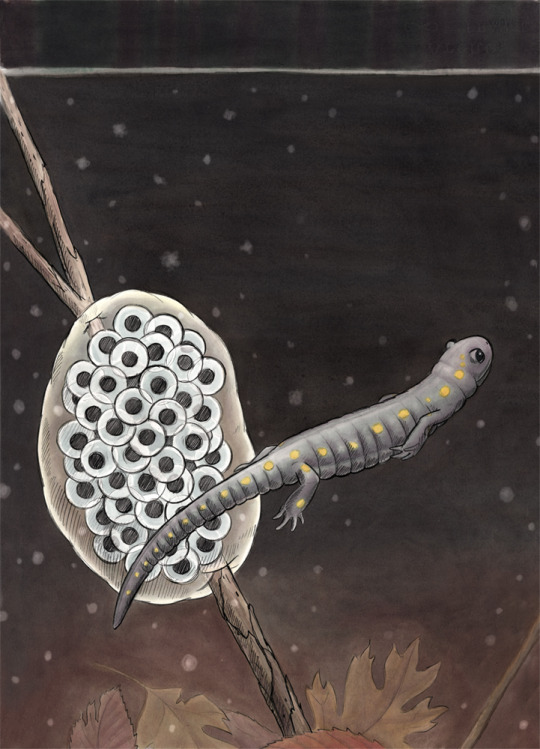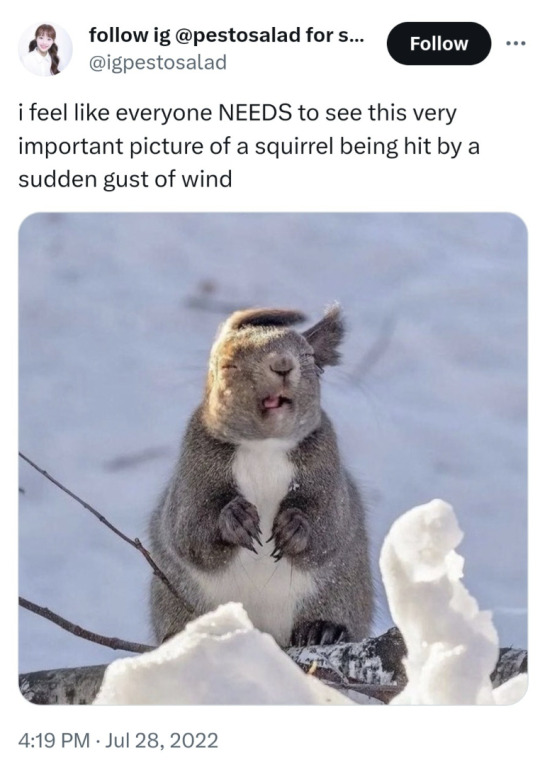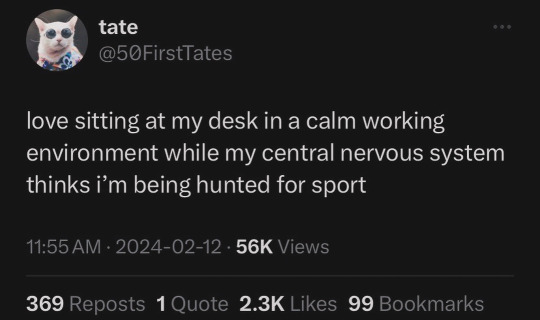Text
You wouldn’t think that flamingoes are extremophiles just from looking at them. It’s like somebody tried to build the vertebrate equivalent of that fungus that lives inside nuclear reactors, and ended up with a gangly pink dinosaur with a spoon for a face.
192K notes
·
View notes
Text
Welp. Things get weird with the anesthesia department from time to time. Today a patient, left unsupervised for 5 whole minutes in her room at the surgical ward, chewed her central line out...
1K notes
·
View notes
Text
28K notes
·
View notes
Text
every single day I think about how american black vultures are known for engaging in allopreening (preening between different species)
and they have a specific relationship with crested caracaras, in which the black vultures assist them by not only preening them after meals but also leading them to food in the first place— due to their superior sense of smell— while the caracaras assist the black vultures by acting as a warning signal in case of danger
and while this is more typical of black vultures, this is not common at all for any member of the falconidae family— it’s a special bond!


yet another post in favor of vultures everyone , hope you enjoy:) and I implore you to do some more research on these incredible birds !!
34K notes
·
View notes
Note
How long is a cow’s gestational period if you’re expecting calves as late as December?
283 days on average, a human’s is 282!
#that’s approximately 9 months PROFESSOR#teach me not to answer questions during lecture#im not salty#you are#actually I’m very hypernatremic over this#vet school#vet school probs#vet med
38 notes
·
View notes
Text

Elephant Trunk Snake aka Javan File Snake (Acrochordus javanicus), family Acrochordidae, Malaysia
photograph by Bryce Trevett
21K notes
·
View notes
Text


what in the beef bred yuck
94 notes
·
View notes
Text
one of my fave things about spiders is how they walk. theyre so thoughful and melodical about every step and i think thats really cute. they pause when they're unsure and approach everything with this poise about them.
from the perspective of my engineering degree, its also really cool how they move their legs using hydraulics of their own haemolymph (bug blood).
they also have little toe beans. thats also great.
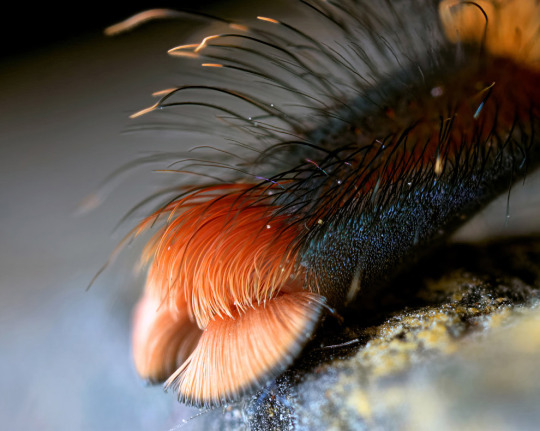
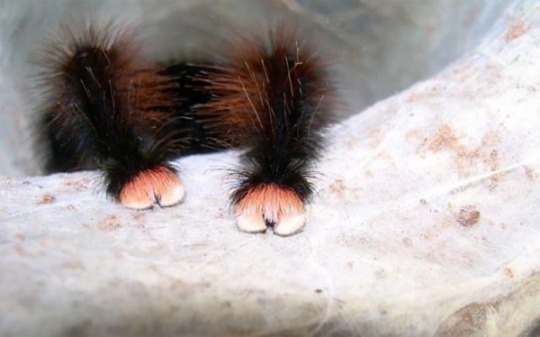
hehehghsh look at them
1K notes
·
View notes
Note
When horses end up with severe leg/hip injuries, they are almost always put to sleep. The odds of recovering full mobility from such injuries are slim and the odds of reinjury are high, so even if the horse is perfectly healthy in all other aspects, it is generally recognized to be more humane to put them down than to keep them alive just to live the rest of their lives limping around a small paddock or stall. A life for a horse in which s/he cannot gallop, leap, explore and play is no life at all. Why not apply the same logic to cetaceans? A life for a cetacean in which they can’t dive hundreds of meters, make meaningful autonomous choices (“should I play with the rubber ball or the puzzle feeder today?” is not a meaningful choice; research has shown that autonomy is crucial for animal welfare), echolocate and experience the rich biodiversity of the ocean is no life. I really don’t understand why it’s so horrible to think it more humane to euthanize a confused and sick orca calf if there is no chance of rehab and release than to take her/him permanently into captivity. It’s not disparaging or hateful to cetacean trainers to say so—I know they care about animals—it’s simply a logical ethical stance. Instead of searching in vain for orca conservation organizations that aren’t “radically anti-captivity”, maybe pro-caps should look inwards and ask themselves why all the major orca organizations (Center for Whale Research, Orca Behavior Institute, OrcaLab, Wild Orca, Orca Conservancy, Far East Russia Orca Project, etc.) as well as some cetacean organizations (ex. Whale and Dolphin Conservation, Cetacean Society International) oppose captivity. Is it because all of these esteemed groups, which if you look them up are all staffed by credentialed scientists, have been duped by the “animal rights agenda”, or could it be because maybe, just maybe, they know what they’re talking about? If captive orcas are so different from wild ones that wild orca biologists have no credibility to speak about their welfare, then that’s a clear indictment of captivity already.
Hi. I'm sorry for not answering right away, I was still at my externship when I got your ask, and I wanted to be able to sit down and give you a proper answer. So unfortunately, I don't think what I say will satisfy you. I don't expect to change your mind, nor is that my goal here. I only want to explain why I believe the way I do, so that you or others reading this can at least understand that it's not a position I take lightly, nor do I think it's infallible.
(Long post below the cut):
To start off, as an (almost) veterinarian, there are absolutely plenty of circumstances where I find euthanasia to be the correct decision. Euthanasia is our final gift to our patients, a swift and painless death in the face of prolonged suffering or poor quality of life. A large dog with debilitating osteoarthritis. A cat with terminal lymphoma. A down cow. A raptor with an amputated leg. Or like you mentioned, a horse with a fractured hip. These animals would live in a constant state of pain that they don't understand, and death can rightly be considered a kindness to them.
But an otherwise healthy orca calf? I would consider that a false equivalence. I agree that life in the wild should be prioritized whenever possible, and that captive orcas lead very different lives than their wild counterparts. But if that orca cannot return to the wild (orphaned and unable to be reunited with its pod, habituated to humans, non-painful disability such as deafness), and there is a facility willing to take it on, I do not think euthanasia is an appropriate option. In human care, that calf can still swim, breach, and dive, even if not to the same depths as the ocean (it's also worth noting that these are all costly behavior energetically and are not performed for no reason). It can still socialize and form family bonds with an adopted pod of whales. It can still (theoretically) mate and rear calves. It can still engage its big brain in problem-solving through training and enrichment in the place of hunting. And as a bonus, it will never go hungry and has access to veterinary care if ill or injured.
This is not a wild life. This is not the same life they would've, or should've known. A pool, not matter how well-appointed, is not the ocean, and we should not claim they're comparable. But I don't think it's a fate worse than death. I truly don't. But if it is... if freedom really is worth more than life, then all captive whales need to be euthanized. Even in a sea pen setting, they will not be free. They will not choose their food, their companions, their enrichment, their comings and goings. Those choices will still be made on their behalf by caregivers, and they will still have pretty much the same levels of autonomy as in their tank habitat. They will still be captive. (While some people do advocate for this, I don't think it's a popular outlook. Even SOS Dolfijn, a historically anti-cap organization, recently announced plans to build an aqauarium as permanent home for non-releasable cetaceans rather than continuing to euthanize them).
Speaking of autonomy, yes, it is very important. But I truly don't think the orcas are distressed by the lack of meaning in choosing between enrichment devices. I think that's why we disagree on this topic... we have different worldviews. We both see orcas as beautiful, intelligent creatures, but I do not see them as people. They are animals, and for all their complexity, I interpret their behavior the same way I do any other species... they are motivated by food, reproduction, and (since they're highly social) companionship. Because of that, I still think we can give them a good life in human care, which is why it frustrates me to see the zoo community throw up their hands and give up rather than trying to improve our current less-than-ideal setups (*shakes my fist at the Blue World project*).
Now, I don't think it's wrong to be emotional about animals. I most definitely am! And it's very clear to me you love orcas and care about their wellbeing deeply. I admire that about you, and I appreciate your passion.
On to the next point... in the cetacean world, I've found that there is an unforunate divide between researchers and caregivers who work with cetaceans in human care and those who study them exclusively in the wild. And that schism far predates the Blackfish era. Most of those organizations you listed are indeed legitimate, and I fully support their vital work and encourage others to do the same. A few of them, though, share things like this:
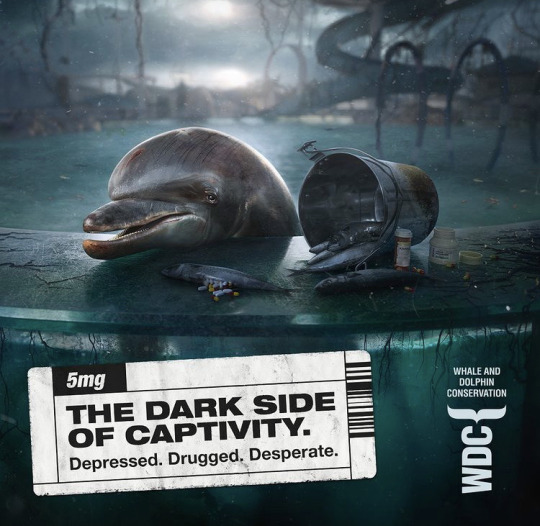
I think you can understand why this hurts me. And it's a lie. I've now interned at three aquariums (two of them AZA-accredited) that house various species of cetacean, and it's impossible for me to reconcile what I know and have seen to be true and what Whale and Dolphin Conservation wants the public to believe: that these unbelievably loved, vivacious animals are drugged and tortured by their greedy captors. It's not true, and I do not appreciate WDC for spreading this creepy artwork around. Nor do I think that fighting captivity is a beneficial allocation of resources when there is an overwhelming number of genuine threats to the survival of wild cetaceans.
Anyway, back to the scientists. Personally, I don't consider researchers who work exclusively with wild orcas to be either superior or inferior to those who work with captive whales. And sometimes I wonder how much of their position is a self-fulfilling prophecy: if someone opposes captivity on moral grounds, they won't work with captive whales, so they'll never get to know what their lives and care are like beyond maybe a single tour of the park or memories of how things were done in the 1960s (like Dr. Spong, who worked with some of the very first captive orcas at the Vancouver Aquarium).
I also don't think it diminishes the expertise of wildlife biologists to say that they are not experts on husbandry, training, or medical care... those are very different fields, and ideally, they should all inform each other. And of course, there are folks who work with both wild and captive whales. One of the reasons I linked SR3 in my previous post is they have staff with backgrounds in both managed care and research of free-ranging populations (I actually have no idea what the organization's official stance on captivity is, it's not something they address).
Maybe I'm wrong. I try my best to keep an open mind, but I know I'm also swayed by my own preconceptions and experiences. When I started this blog in December 2020, I was a first year vet student with minimal actual experience outside of domestic animals and some herps, and had only recently adopted the pro-captivity outlook. Now, I'm much more deeply involved in the zoo and aquarium world. These are people I know and respect, people who have written me letters of recommendation and comment on my Facebook posts, people I've had dinner with and showed up with after hours to care for a sick animal. And I recognize that biases me. The zoo world is often resistant to change, especially folks who have been in the industry for many years. And that doesn't do anyone, especially the animals, any good. I don't want to get stuck in an echo chamber, so I make it a point to read anti-captivity literature, even when it upsets me. If there is anything I can do to improve their lives, I want to learn about it, regardless of the source.
I try to adapt to new information. For example, in the past few months alone, I've become a lot more favorable toward the idea of sea pen habitats. My concerns about "sanctuaries" are more logisitical* and philosophical** rather than the idea that artifical habitats are inherently superior to pen habitats (they're not), especially when plenty of traditional facilites already make great use of ocean pens or enclosed lagoons. There are pros and cons to both, and a lot of it depends on the needs of the individual animals.
*funding; maintenance; lack of land-based backup pools and fully-equipped medical facilities; introducing immunologically naive animals to pollutants and infectious agents; disruptions to native wildlife; staffing activists and wildlife biologists rather than those with relevant husbandry experience
**villainizing aquariums; promoting the project as a "release to freedom" to the public when it's really another form of captivity; claiming the animals' lives will be "natural" when they will still require training, artificial enrichment, contraceptives, and social management if done correctly; downplaying or completely denying the very real risks of such a transition and insisting the animals will automatically be better off when Little White and Little Grey have proved that's not the case
If you made it to the bottom, thanks for reading. I wish all the best for you, and I mean that genuinely ❤️ even if we disagree, I hope you can appreciate our shared love for these animals and a desire for their wellbeing. Best of luck in all your endeavors!
#as usual#well said orcinus#but I am so bothered by anon’s comparison to horses#horses support several hundred to over a thousand pounds#of their body mass on literal toothpicks with minimal musculature and blood flow#anon please look up what happened when they tried to correct a catastrophic fracture in#barbaro#they’re not the same#cetaceans#animal husbandry#false equivalency!
147 notes
·
View notes
